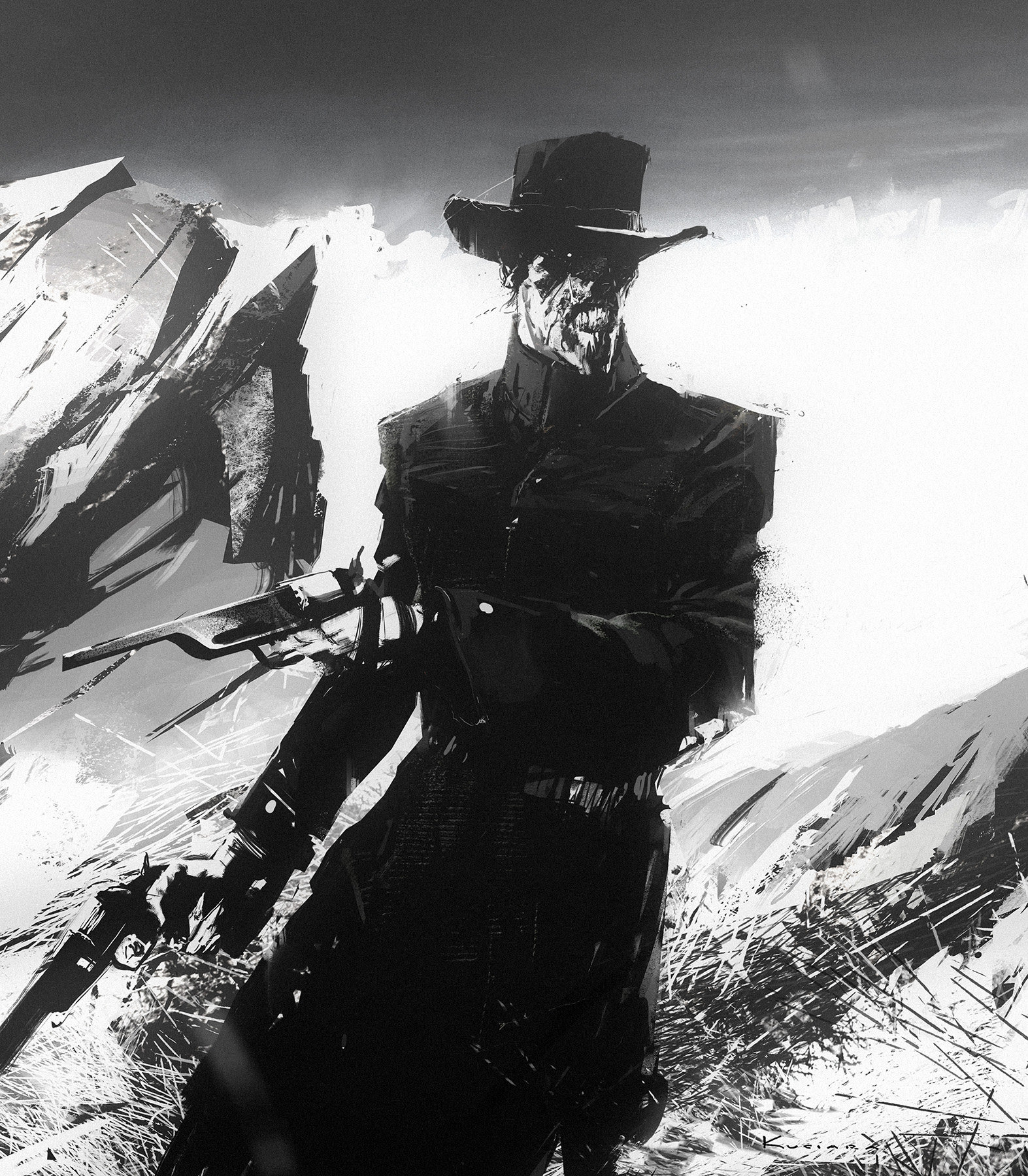It is not the only way to create an interesting adventure, be it OSR or not.
Let's look at a few video games and pieces of fiction where death is just the beginning of a greater adventure, or where constant death is a reality.
 |
| The Soul of Cinder, an amalgamation of undead champions in Dark Souls 3 |
Soulsborne Games - This is Demon's Souls, all three Dark Souls games, and Bloodborne. In these games, your character is essentially immortal; they die, respawn, and try again, losing a little bit more of themselves along the way. In world, you can see various would-be characters that don't have the same strength your character does. Hollows in Dark Souls, or Demons in Demon's Souls, or Beasts in Bloodborne. Essentially, the mechanic is, you can use death to make risky plays and to learn things and to keep moving forward up till a certain point, changing with every death.
Sekiro: Shadow's Die Twice - Made by the same company as the above, the difference here is that when your character in Sekiro dies, you have a limited number of times where you can respawn automatically. This allows you to take enemies by surprise and set up some very interesting ways to achieve your goals. If you exceed that number, you are returned to a shrine that you've prayed too.
Bleach - A manga made by Tite Kubo, here death allows for most mortals to achieve the greater powers and poetry of their souls, essentially becoming greater beings and refining themselves through what might as well be a poetic representation of reincarnation. Here, death serves as a gateway to getting strong, though dying again leads to actual death, making it a one time thing that isn't always beneficial either.
Death Parade - An anime where, after dying, the characters go to a bar and have to gamble for their soul in order to move on deeper into the afterlife. In this case, death serves as an entirely new adventure laden with all kinds of theme about sin vs virtue, dying with regrets, moving on past grief, etc. This set up is less game mechanic and more "what do when death has come for me."
Princess Mononoke - This is a strange one, where actual death doesn't become a thing until the very end in true. Throughout the movie, protagonist Prince Ashitaka is dying from a curse given to him by a dying demon-god. He ventures to a mythical forest where the Forest God there has power of life and death, and rebirths him--healing a fatal wound but not his injury. The god, when it dies later, baptizes him as thanks for returning to it a decapitated head. Here we have a situation where one thing in particular in killing the characters, but other things can/will not, leading them into a series of adventures to get rid of the actual death curse on them.
 |
| Undead Gunslinger by Kuciara. |
All of the above say one thing to me: death is an avenue for adventure.
It can be used to:
- Learn more about the world, it's challenges, and how to overcome them.
- Be used as a tool to gain advantages.
- Be a requirement to gaining power to achieve more difficult goals.
- Serve as a compelling post-death adventure.
- Be used to create an interesting, unique set-up for adventures.
Now then, translating this to game mechanics.
The system I've been working on for the past week or so has been building to this. These "death mechanics" and the themes/ideas surrounding them are exactly what I want my RPG to capture. I guess, in truth, what I'm writing isn't a true OSR adventure--it isn't designed in a way to achieve interesting dungeon crawls or as a full call back to older editions of the game. The point of the RPG is to introduce new ways to adventure/play games that are fantasy in nature. BUT, that being said, these death mechanics can and probably should be applied to OSR since death is so frequent. Imagine playing Frostbitten & Mutilated, dying, and then encountering an amazon tribe that exists only in this weird death-space, frozen and hateful?
Possibilities abound.
Let's start with a simple Dark Souls inspired death-mechanic.
Hit Dice as Treasure
You do not gain hit dice (HD) from leveling up in a class, or from rolling on a Class Advancement Table (CAT). Instead, you gain HD from discovering strange graves, hidden away corpses, killing monsters, or buried inside of obscure dungeons. When you discover a new HD, roll 1d12 and add the number rolled to your maximum and current hit points (HP).
When your hit points are reduced to 0, you die. You reincarnate with all your equipment, no wounds, and at your maximum HP within 1d10 miles of your place of death. When you reincarnate this way, half of your HD (rounded up) are left in place of your corpse. If you ever run out of HD upon death, you leave behind a corpse suspect to the whims of whoever or whatever killed you.
What does this do? HD are a form of treasure separate from magical items or coins that can and should be sought out if the players want to become powerful. Losing your HD sucks, but you have incentive to go and find them, creating an emerging story of revenge or retrieval. It has interesting world-building implications as well. What is an HD? Is it a Dark Souls-esque soul-flame? Are they vials of blood? Are they roses that must be made into tea and drank? Are they drugs that must be imbibed? This leads to things like kings hiring adventures to go bring them back hordes of HD, leading to new adventure dynamics, new enemy goals, etc.
In short, this small mechanical change completely changes how a game is played and adds a lot of unique spice to a game.
 |
| Bonfires from Dark Souls, or something similar, can be used instead of the 1d10 miles concept. |
I'll be making a lot of death mechanics like this for the game I'm making, and they'll become a feature in the games I run as well. Death is the last frontier for living creatures--might as well explore it!
No comments:
Post a Comment